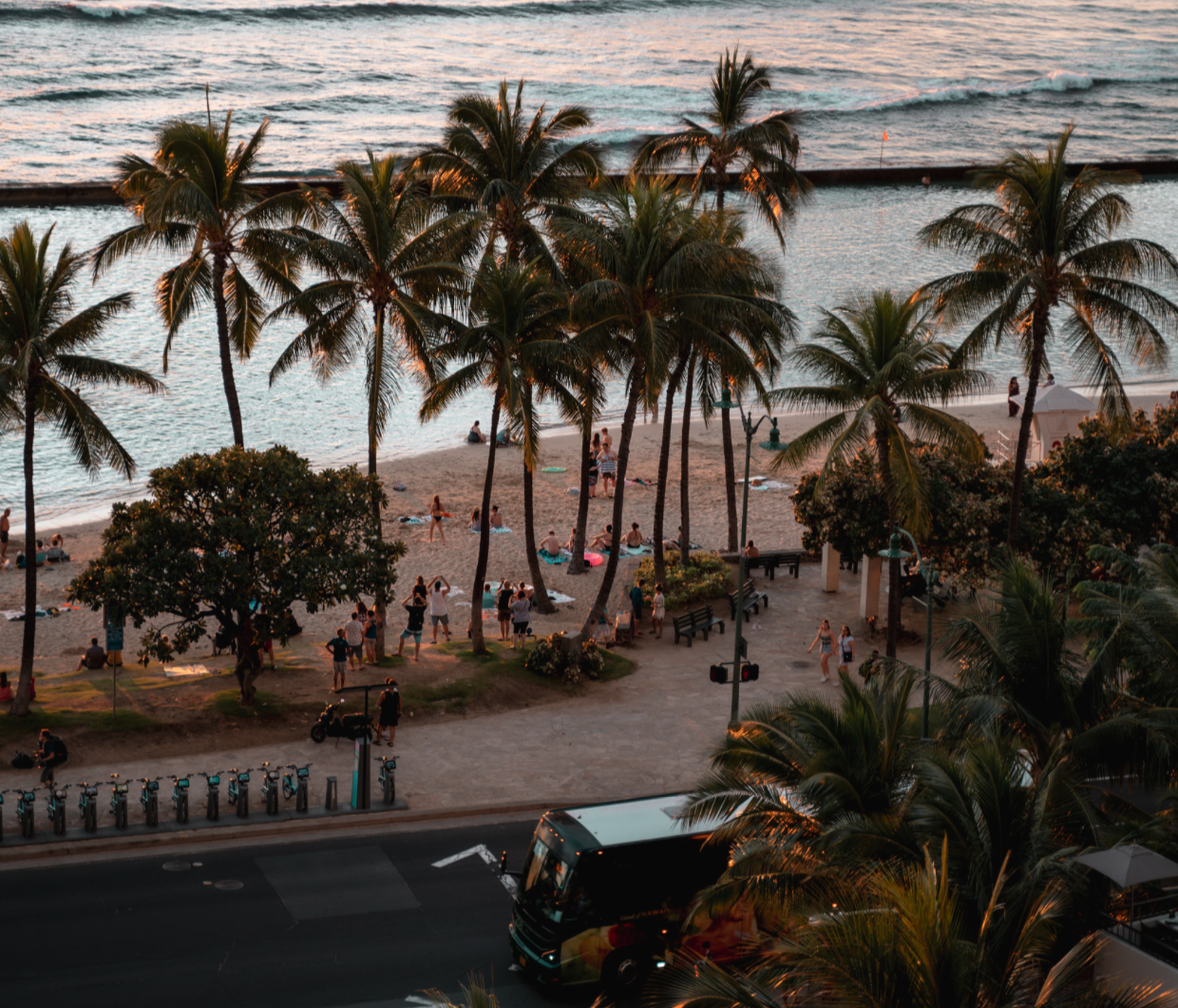Hawai’i youth have successfully pushed their state DOT to agree decarbonize the transportation network by making it less car-centric — and the legal group behind the settlement says that the win could be a "blueprint" for other states who fail to curb their top source of greenhouse gases.
After what plaintiffs said was the first youth climate lawsuit to target a state transportation agency, the Hawai'i Department of Transportation (HDOT) recently agreed to a slate of aggressive provisions aimed at getting the state's transportation network to net zero by 2045 — including completing the state's pedestrian, bicycle and transit networks in five years and setting goals for reducing vehicle miles traveled alongside overall emissions.
Those concessions came in response to a 2022 legal action from 13 Aloha state children and young adults, who alleged that the climate impacts of HDOT's car-focused transportation system — which, like most U.S. states, is their leading source of greenhouse gases — already violated the state's constitutional right to a clean and healthy environment, undermining safety as natural disasters accelerate and endangering their cultural practices, particularly for 10 plaintiffs who identify as native to the islands.
And as those impacts are only poised to get worse, it's past time for HDOT to shift away from the auto-oriented status quo, the group's legal counsel said.
“In Hawai'i — as it is nationwide — the transportation sector tends to be business as usual, and the conduct within the transportation sector has been very car-centric for a very long time," said Joanna Zeigler, staff attorney with Our Children's Trust, the firm which brought the suit.
"So to break that habit, the youth needed to bring it to light. [They needed to] to ask the transportation sector to really look at its practices, and to show that it's going to require a paradigm shift within how the transportation sector operates in order to make a difference.”

Actually fulfilling the requirements of the settlement won't be easy, Ziegler acknowledged.
Even before it reach its 2045 net zero goal, HDOT will have to meet escalating emissions reductions benchmarks every five years, while deploying a $40 million electric car charging network to support trips that can't be made by other modes and to help wean the notoriously oil-dependent state off of petroleum.
The agency will also have to battle political and economic headwinds that have made some of Hawaii's signature transit projects, like the Honolulu Authority for Rapid Transit, among the country's most expensive and long-delayed.
Still, Ziegler argues those are battles the state can't afford not to wage — and that youth themselves are leading the front. The settlement will also create a first-ever youth council to advise the DOT on its next steps, and young people are also guaranteed an opportunity to comment on the agency's climate mitigation and adaptation plans before they're implemented.
“It’s very important that we’re moving away from the car-centric, business-as-usual model, and making sure that the transit network is usable, safe, and frequent for those that need to use it," she added. "Reducing vehicle miles traveled is something that was absolutely emphasized in our case, and was emphasized in the settlement agreement; it's really important.”
If Hawai'i can navigate those challenges, Ziegler hopes it can serve as a model for other states to decarbonize their own transportation sectors — even in communities that don't see it as their "kuleana" (responsibility) to lead the way on climate action.
At no cost to the plaintiffs themselves, Our Children's Trust has already mounted suits against multiple government agencies in Alaska, Montana, Virginia and Utah; several are deep into the appeals processes, and some could have a profound impact on the transportation status quo if they win or settle.
“We're hoping that this settlement and the department's actions in Hawaii can act as a blueprint for the rest of the nation, and even the world," Ziegler added. "It's okay for government to come and sit down at the table with these youths, and with their broader community, and figure out ways that we can come to solutions ... You never know what the next state will be.”






